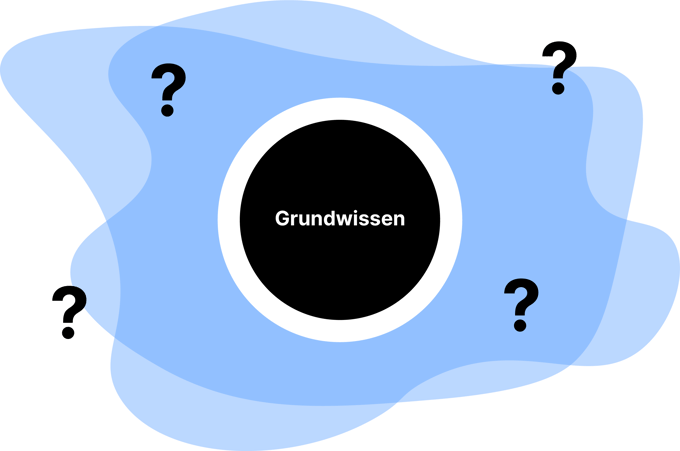Knowledge Park – A spark jumps over!
Man is by nature an enthusiastic individual who literally absorbs the knowledge in the environment. This feature accompanies us throughout our lives. But where does the origin lie and how is enthusiasm transmitted most effectively in the company?

Knowledge - Biological Background
The human instinct, like that of every living thing, is designed for survival.
In order to be able to counteract a potential danger, people save every little bit of information about their environment in the first few moments of life and process it in order to discover connections between their own behavior and environmental reactions and to influence the environment.
This type of information forms, among other things, the cornerstone of a person's perception and willingness to learn.
Childhood is the most intensive learning phase for most people.
Through their own learning experiences at school, family life and professional life, a certain attitude towards the subject of "learning" has developed.
Some are convinced that it is not possible without pressure. Others find it important to motivate the learner.

Knowledge Park – A spark that jumps
But even in everyday life, sparks fly continuously.
An advertising slogan that inspires. A motivational saying that encourages. A graffiti on the passing subway.
But even during a conversation, in classic dialogue, sparks can fly.
The suggestion that one can identify with a fact shapes the character, the perception and the way of thinking and acting of each individual.
All of us, regardless of gender or age, are influenced by social and environmental factors on a daily basis.
Through independent research out of existing interest or unconsciously through manipulation from advertising and politics.
This is what companies and campaigns rely on:
unconscious manipulation.
Ideally, the audience should be convinced that they want to buy a product or service, and not because they feel obliged to do so.
Because obligations slow down the will, the motivation and the natural willingness to learn of people.
The spark of knowledge transfer - the spark - could not jump unhindered under these circumstances.

Philosophical background of knowledge
"I know that I know nothing." - Socrates
This quote is one of the most famous statements of the philosopher Socrates.
The so-called marketplace philosopher from ancient Greece describes three essential stages of knowledge:
apparent knowledge, ignorance, wisdom.
This statement, which can be taken from the dialogue written by the student Plato, does not mean actual "ignorance" in the context of today.
This is a modern but incorrect interpretation of the quote. Rather, Socrates followed the philosophical principles and questioned what was supposedly there: knowledge.
Based on Socrates' view, the knowledge can be derived from the following graphic:

What does this mean for a company?
Basic knowledge forms the central core here, i.e. the know-how that is responsible for the natural survival of humans.
All other layers are formed in the course of life and can be traced back to both personal and professional interests.
The horizon of knowledge expands, which raises more question marks accordingly.
Derived from this, one can say: I know that I don't know.

U2D Aprenia - knowledge transfer through Sparks
In contrast to a classic learning management system (LMS), the focus is not on hierarchically structured learning (top-down approach), but on the learner!
Employees have the opportunity to make know-how available to colleagues and to expand their own knowledge.
This is done on a platform accessible to everyone within the organization, U2D Aprenia.
People have different levels of knowledge and learn in different ways.
In order to pick up every type of learner, the knowledge can be set as sparks in a wide variety of ways.
For example, a text (knowledge article) can be formulated, a video can be recorded or a link can be placed on an external website. There is also the option of making a document available for users to download.
